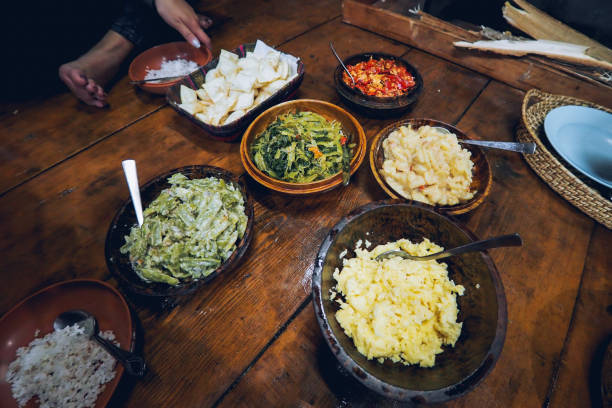Exploring the World Through Culinary Time Travel
Embark on a journey that transcends both space and time, where every bite tells a story of history, culture, and tradition. Culinary time travel is revolutionizing the way adventurers experience destinations, offering a sensory exploration of the past through meticulously researched and recreated historical meals. This emerging trend in gastro-tourism invites travelers to savor the flavors of bygone eras, providing a unique lens through which to understand the evolution of societies and their cuisines.

The Rise of Historical Gastronomy Experiences
In recent years, there has been a surge in popularity for immersive historical dining experiences. From medieval banquets in European castles to recreations of ancient Roman feasts, these events offer travelers a chance to step back in time and taste the past. Specialized tour operators now curate itineraries centered around culinary time travel, partnering with historians, archaeologists, and local experts to ensure authenticity in every aspect of the dining experience.
The Science Behind Culinary Reconstruction
Recreating historical dishes is a complex process that involves extensive research and collaboration between culinary professionals and academics. Food archaeologists analyze ancient cooking utensils, study preserved food remains, and examine historical texts to piece together the ingredients and cooking methods of the past. Advanced scientific techniques, such as residue analysis and isotope studies, provide further insights into the dietary habits of ancient civilizations, allowing for more accurate culinary reconstructions.
Immersive Dining Experiences Around the Globe
Culinary time travel experiences are emerging in destinations worldwide, each offering a unique glimpse into local history and culture. In Peru, travelers can partake in Incan feasts featuring ingredients and cooking techniques that predate Spanish colonization. Japan offers traditional kaiseki ryori experiences that transport diners to the refined world of Edo-period cuisine. In Istanbul, Ottoman-era banquets recreate the opulent dining customs of the sultans, complete with period-appropriate entertainment and attire.
The Educational Value of Tasting History
Beyond mere novelty, culinary time travel serves as an innovative educational tool. By engaging multiple senses, these experiences create lasting memories and deeper connections to historical narratives. Travelers gain insights into the socioeconomic conditions, trade routes, and agricultural practices of past societies through the lens of food. This approach to learning history through gastronomy appeals to a wide range of travelers, from history buffs to culinary enthusiasts seeking novel experiences.
Savor the Past: Tips for Culinary Time Travelers
• Research destinations offering historical gastronomy experiences before planning your trip
• Look for events that combine dining with educational components, such as lectures or guided tours
• Be open to trying unfamiliar ingredients and flavor combinations that may differ from modern tastes
• Engage with the hosts and fellow diners to enhance the immersive experience
• Document your culinary journey through photos and tasting notes for a unique travel memoir
A Feast for the Senses and the Mind
Culinary time travel represents a fascinating convergence of gastronomy, history, and experiential tourism. As travelers increasingly seek authentic and meaningful experiences, this innovative approach to exploring the past through food is poised to become a significant trend in the travel industry. By allowing us to literally taste history, culinary time travel offers a profound and memorable way to connect with the cultural heritage of destinations around the world, enriching our understanding of both past and present.






